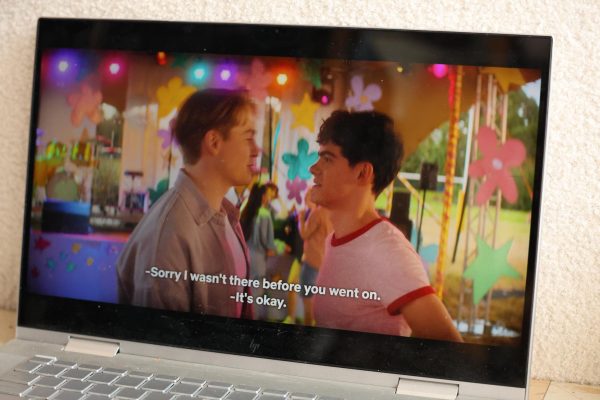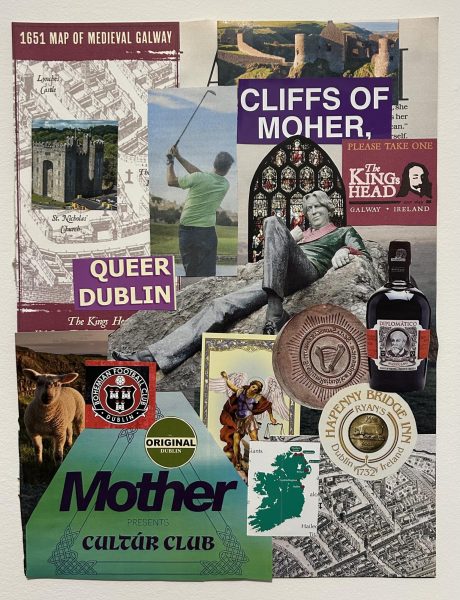Editor’s Pick: Remember the Titans
“Remember the Titans” is loosely based on a true story.

“Remember the Titans” is loosely based on a true story. (Courtesy of Facebook)
“Remember the Titans” tells the story of a football team in Virginia defying the odds and managing to overcome the racial tensions of their town to go on and have a perfect season — winning all 13 of their games including the state championship. The movie emphasizes family and friendship until the last minute when we watch the team 10 years after their season say goodbye at the funeral of their star player, Gerry Bertier.
Football fans may know more about the true story behind the Titans’ perfect season, but the average viewer may not. The film opens with the classic line, “Based on a true story.” Maybe it is naïve to expect that, as this suggests, the movie is based mostly on truth. Perhaps even to say “mostly” based on truth is naïve as a considerable number of details may be true, but not exactly a majority. However, after some research it is clear that “Remember the Titans” pushes the limits of how much fact is required for it to be considered “based on a true story,” and not fiction.
To be fair, there was a Titans football team in 1971 who had a perfect season and won the state championship in Virginia. However, the tension in the movie that came from this being the first integrated team in their football conference was purely fiction as T.C. Williams High School was integrated six years before this, and every team in their conference was integrated by then as well. As far as the racial tensions that may have existed between players — they have said in interviews that this was also exaggerated. Though even if there had been, it does seem likely that someone would deny having racist views in the past. The movie depicts a brick being thrown through the front window of Coach Boone’s house, but it was actually a toilet which demonstrates that there clearly were still racial tensions in Alexandria.
The heart of the movie is the friendship between the two star players: Gerry Bertier who is white and Julius Campbell who is Black. After fighting in the beginning of the film, they form an unlikely friendship and lead the team to unite and become undefeated. One of the most touching scenes is arguably after having been paralyzed in an accident, Bertier admonishes a nurse for not seeing the family resemblance between him and his “brother” Julius. Members of the 1971 Titans have said that the two were friends like any other teammates, but this brotherly bond was simply added for the plot.
Sadly, another crucial plot point that is less than true is Bertier’s accident. Bertier gets into a car accident and is paralyzed after their second to last game of the season. The movie then shows him watching his team win the state championship from his hospital bed, but this is yet another stretch of the truth. He did get into a car accident and he was paralyzed, but this occurred after a banquet held to honor the team for winning the state championship. The cause was mechanical failure, and not lack of attention as the movie suggested. It is clear that these changes were made in order to add to the arc of the plot and Bertier’s character. Bertier did go on to win a gold medal at the Wheelchair Olympics, and as the movie shows, he died in 1981, exactly 10 years after that perfect season. The movie leaves out the tragic detail that this was due to another car accident, this time involving a drunk driver.
The last key element of this movie is the relationship between the two coaches Herman Boone, played by Denzel Washington, and Bill Yoast. The plot of the movie ensures that if the Titans lose, Boone will lose his job. This is done in order to help secure Yoast as coach and get him into the Virginia High School Hall of Fame — which did not actually exist, making this aspect of the plot false as well. In fact, the coaches are shown by the end of the film to be friends. Also not mentioned in the movie is the fact that by 1979, just seven years after the Titan’s perfect season, Coach Yoast and other assistant coaches were threatening to quit if Coach Boone was not fired. Boone was fired for allegedly being abusive towards his players. We can not be certain whether these allegations were true or if there were racial motivations behind his removal, but it is obvious why this did not make it into the movie.
Perhaps the most insignificant falsehood for fans of the movie: the dance that the Titans did as a warm up when they came onto the field. Though they never did this, it is one of the most endearing parts of their football scenes — even for those who know little about football. Past players have said their perfect season did bring the town together, but the racial divides were exaggerated in the film. Essentially the truth in this story lies in the team, most characters and their perfect season. Even though we still “Remember the Titans,” their memory is forever distorted with half truths that changed the story to make it a blockbuster.

Megan Dowden is a junior at Fordham College at Rose Hill from New Jersey. She is majoring in history and minoring in political science. She has worked...













































































































































































































Phyllis Johnson • May 15, 2023 at 8:10 pm
I always heard that Andrew Lewis in Salem Virginia was based on the movie. What role did they play?